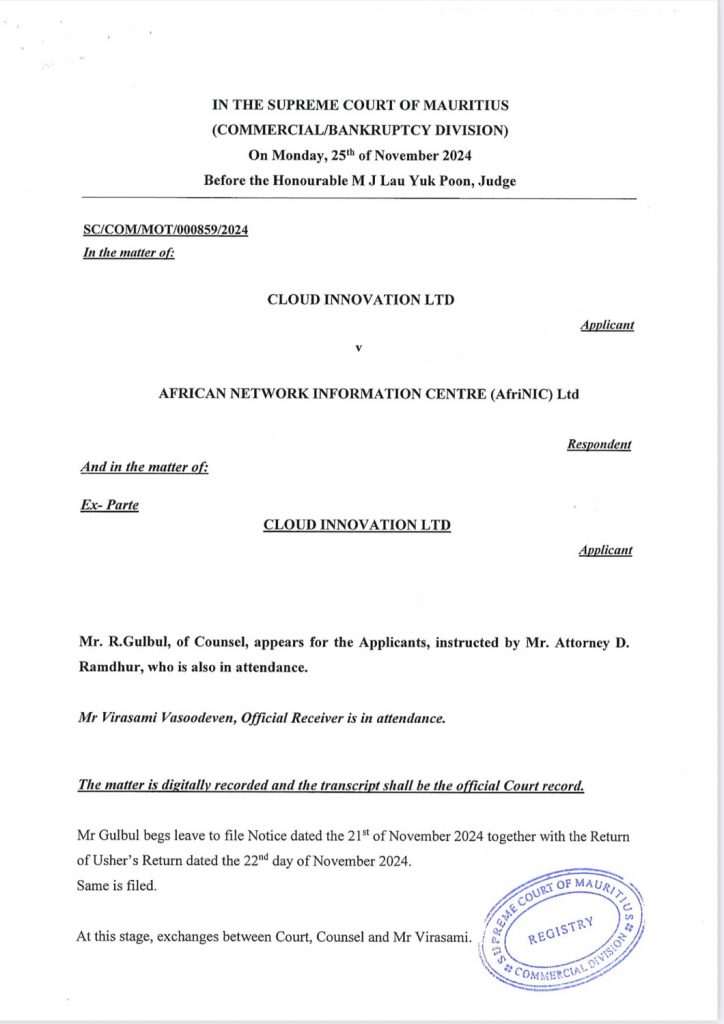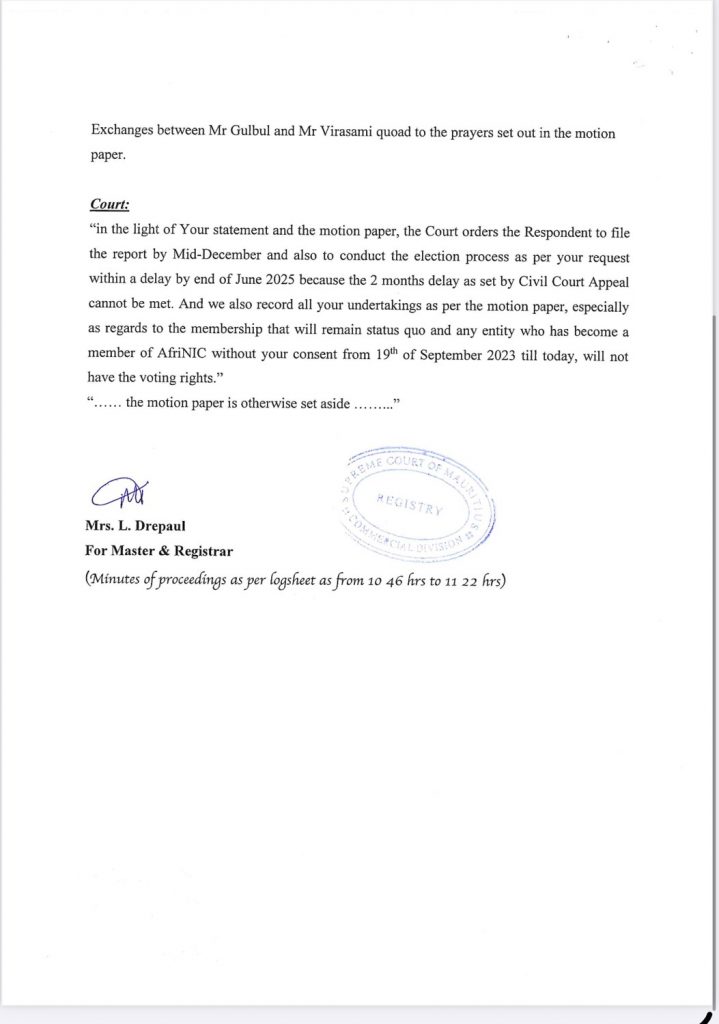- The Supreme Court of Mauritius ruled that AFRINIC members created after September 2023 lack voting rights.
- AFRINIC must hold elections for a new board and CEO by June 2025, an extension from the initial December 2024 deadline.
The Supreme Court of Mauritius has issued a landmark ruling impacting the governance of AFRINIC, the African Regional Internet Registry (RIR) responsible for managing IP address allocation across the continent. Responding to a motion filed by Cloud Innovation, the court declared that any AFRINIC members added after the organization was placed into receivership in September 2023 are ineligible to vote. Additionally, responding to a request by the Official Receiver, Mr Virasami Vasoodeven, it extended the deadline for electing a new board and CEO from December 2024 to June 2025.
The ruling stated: “The Court orders the Respondent to file the report by mid-December and also to conduct the election processes as per your request by end of June 2025.”
It added: “…any entity who has become a member of AfriNIC without your consent from 19th of September till today will not have the voting rights.”


AFRINIC’s legal woes
This decision represents the latest twist in a protracted legal conflict between AFRINIC and Cloud Innovation, a major IP address holder. At the heart of the dispute is the allocation of 6.3 million IPv4 addresses by AFRINIC to Cloud Innovation between 2013 and 2016. These addresses, now valued at approximately $50 each due to global scarcity, have sparked allegations of mismanagement and procedural violations. Cloud Innovation’s founder, Lu Heng, has been a vocal critic of AFRINIC’s governance, citing irregularities and opaque practices.
AFRINIC’s governance crisis deepened in 2023 when it was placed under receivership following numerous court cases, including accusations of contempt and financial mismanagement. A court-appointed receiver was meant to stabilize the organization and prepare it for elections, however AFRINIC contested the appointment, putting the organization once again into a state of operational limbo. AFRINIC’s appeal was disregarded last month, and the court’s latest directive underscores the urgency of restoring legitimacy and transparency within AFRINIC’s governance structure.
Also read: AFRINIC Official Receiver reinstated, elections to go ahead by end of year
Also read: What is AFRINIC? The role and challenges of the African Regional Internet Registry
AFRINIC elections in June 2025
The decision to extend the election timeline aims to ensure a thorough and inclusive process for appointing a new board and CEO, addressing criticisms of rushed or flawed governance reforms. However, the exclusion of new members from voting rights has raised concerns about equity and representation among stakeholders.
The Number Resource Organization (NRO), a coordinating body for RIRs globally, has expressed cautious optimism, emphasizing the need for a stable and functional AFRINIC to support Africa’s growing digital economy. Cloud Innovation has also welcomed the court’s decision, viewing it as a step toward accountability and effective governance.
AFRINIC’s role in managing IP address allocation is crucial for the region’s internet infrastructure. Its ongoing legal and governance challenges highlight broader issues in global internet governance, including resource allocation, transparency, and the balance of power among stakeholders.
With elections now set for mid-2025, the international internet community will be closely watching how AFRINIC navigates this pivotal period, aiming to emerge stronger and more resilient.

